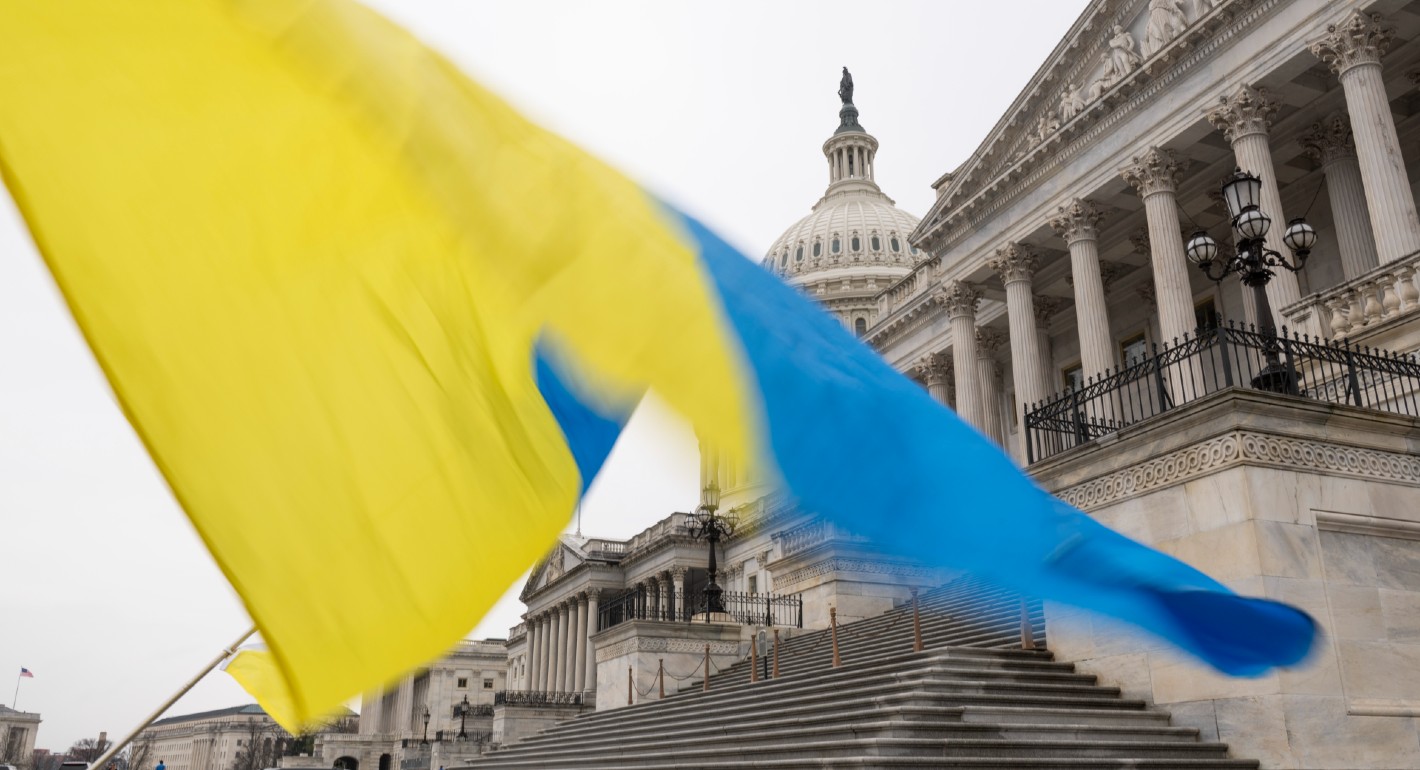(JTA) — When I traveled to Poland shortly after the outbreak of the conflict in Ukraine, I met a young mother who, with her baby, fled Kyiv without her husband. More than baby food and a roof over her head, she needed a support system and community to navigate all that would come next. With the outpouring of assistance from individuals and our partner institutions abroad who see it as their duty is to aid our fellow Jews in distress and rebuild Jewish life for coming generations, my organization, the American Jewish Joint Distribution Committee (JDC), was there for her.
Seven months later, many people outside of Ukraine think the danger has abated, that a reduction in the pace of those fleeing signals an end to their plight, and that the Ukrainian Jewish community is diminished but stable.
Such misunderstandings downplay the urgency of challenges we have a part in solving. This is especially true given the outsized role that the global Jewish community has played to date in the humanitarian response. With tens of millions of dollars in support from the Claims Conference, Jewish federations across North America, the International Fellowship of Christians and Jews, foundations, individual philanthropists and many others, we’re invested in this crisis for the long term.
It is important, therefore, to set out three important realities and re-engage the wider Jewish public in our critical work:
The majority of Ukraine’s Jews, and their leaders, remain in their country.
One of them is Svetlana M., the heroic director of the JDC-supported Hesed social service center in Poltava, in central Ukraine. Hesed serves the region’s needy Jews and is a hub for crisis support. Svetlana is in her 40s, a psychologist by training, who turned her volunteerism and passion for the Jewish life into a career aiding the Jewish community. “We refuse to leave our city, and all those people who need us,” she told us. “Think about the elderly people afraid to even step foot outside. They need us, their community, now. We have a rule in our family: in good times and hard times, we should be together.”
It’s true that tens of thousands of Jews, including some leaders, have fled. But the vast majority of the country’s estimated 200,000 Jews, like Svetlana, have remained in the country. Many escaped to Ukrainian cities in safer locations. Others have left, and then returned from abroad. Among the nearly 40,000 poor Jewish elderly and families served by JDC before the conflict, approximately 90% are still there.
Tens of thousands of Jews in country continue to turn to the Jewish community for support during the conflict or volunteer to aid their neighbors. They are buoyed by scores of brave Jewish professionals — social service workers, JCC staff, volunteer coordinators, rabbis, and Jewish educators, and, of course, the staff of JDC — who have been leading emergency work from Kyiv to Dnipro, Odesa to Lviv.
Svetlana and the staff and volunteers at Hesed have endured the stress of constant air raid alerts — more than 500 since Feb. 24 — and the influx of more than 250,0000 internally displaced people to the city. Svetlana has worked around the clock to address those ever-increasing human needs and to ensure the Jewish community becomes a touchpoint for joy during these tough times. Svetlana and her team — including her two sons — have planned numerous Rosh Hashanah holiday activities for seniors, teens, children, and displaced families in the coming weeks. They’ll deliver holiday aid packages and hold online and in-person celebrations with singing and traditions like apples and honey, part of our overall High Holiday efforts around the country.
Need is spiking throughout Ukraine.
Boris R., 70, and his wife, JDC clients before the conflict, had to flee their home in the east with our help, when, as Boris tells it, “our house was ruined by shelling. There’s no apartment, nothing. At such an age, I had to leave my native town.” It was a harrowing journey, especially as Boris’s wife has advancing Alzheimer’s and cannot walk. They emerged from the building’s basement and left with nothing more than the clothes they were wearing, their passports, and their marriage certificate.
After staying in Dnipro for 10 days to recover, Boris and his wife traveled to Lviv, where they have been for the last three months. His son and family are also nearby. Boris has no intention of leaving Ukraine, but is barely able to survive without our help. The cost of his rent, with increasing utility prices, comes to $324. He and his wife’s combined pensions are only $243.
While headlines focus on the south and east of the country, their plight is part of an under-reported, unfolding crisis around the entire country. Decimated infrastructure, severely reduced human services, and limited access to utilities are widespread. The economic situation is dire, with skyrocketing inflation projected to hit 27% and Ukraine’s GDP expected to contract by more than 34% in 2022.
Making matters worse, 3.6 million Ukrainians who remained lost their jobs, resulting in a population of “new poor,” previously middle class folks now facing poverty. Those who were poor before the crisis are in even worse shape. With prices for food and medicine increasing more than 20 percent in the last year, pensioners like Boris living on $3-4 a day have seen scarce resources stretched even further. Add to this the widespread reality of post-traumatic stress brought on by loss in many forms — loved ones, homes and safety.
An elderly Jew in Lviv, Ukraine examines the contents of a food package delivered by a JDC aid worker. (Yura Malenko)
Our support — including food and medicines and supplemental aid for emergency needs like their rent and utilities — is a lifeline for these Ukrainians. JDC has shipped more than 600 tons of humanitarian aid into Ukraine, and we are directly supporting 35,000-plus clients today, including more than 2,600 new poor and internally displaced Jews. This is in addition to the tens of thousands of others to whom we have provided trauma support, medical care, evacuation, or hotline services to date. But — with no end to the conflict in sight — more needs to be done.
The refugee crisis is not over.
While the mass exodus of refugees has slowed, there are, according to our European Jewish community partners, some 10,000 Jewish refugees in their remit. The actual number is likely higher, as some have not reached out for help. As global inflation worsens and many choose to remain in Europe, we expect more may turn to Jewish communities for support. We need to ensure they are prepared with the ability to extend care to their, and our, extended Jewish family.
In partnership with local Jewish communities, JDC is currently caring for 4,000 refugees in 13 countries. In addition to food, medicine, accommodation, psychosocial support, and connections to local programming, we’re moving from temporary care to long-term support. This includes housing solutions, health care, living stipends and workforce opportunities. And helping Ukrainian Jews to integrate into local Jewish communities is critical.
Rosh Hashanah is approaching, ushering in a time of introspection and new beginnings. During this period, we should proudly take stock of all we have done for Ukraine’s Jews—and concentrate on all we must continue to do in the New Year ahead.

is the CEO of JDC, the global Jewish humanitarian organization.
The views and opinions expressed in this article are those of the author and do not necessarily reflect the views of JTA or its parent company, 70 Faces Media.




